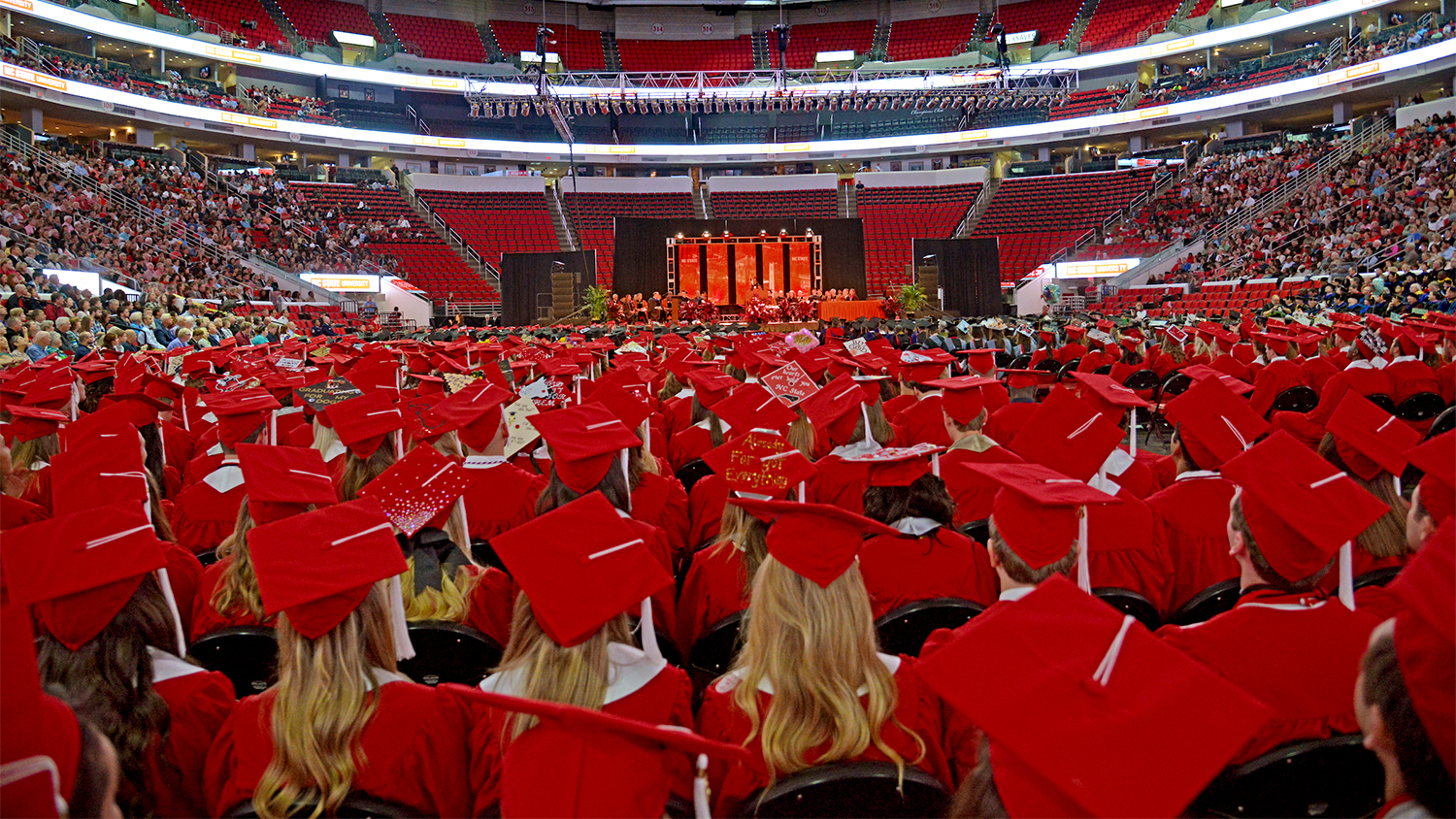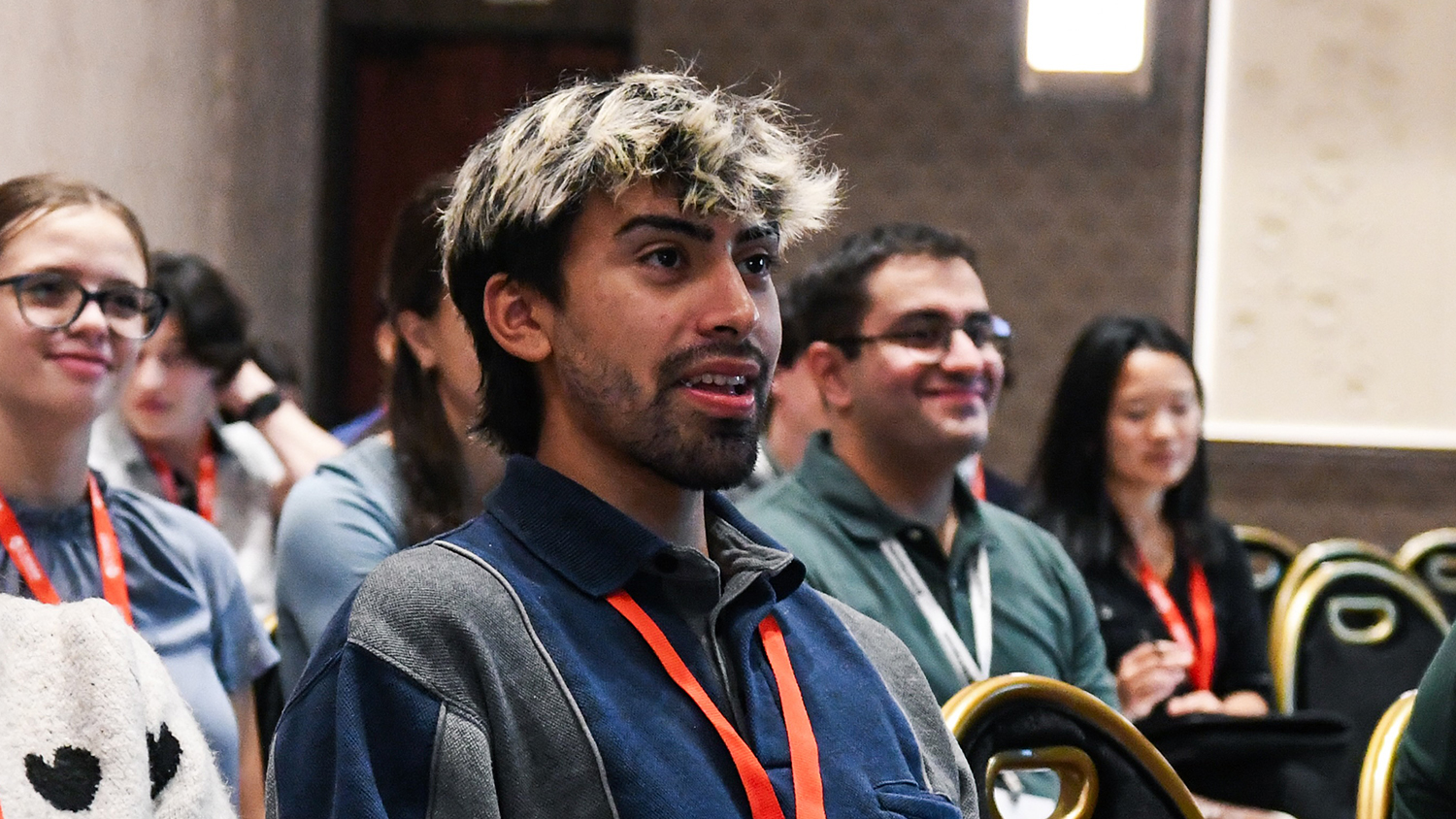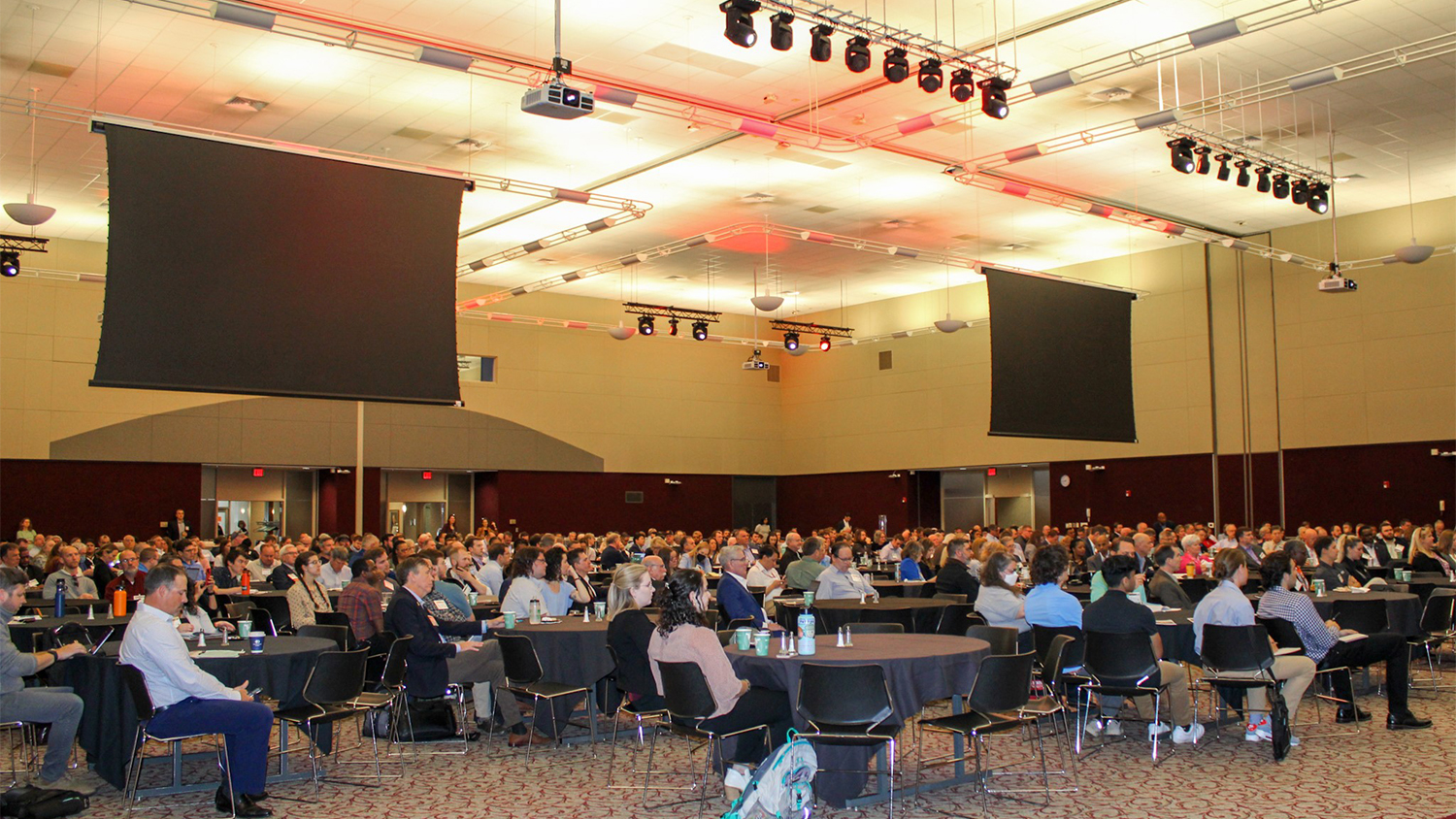Nurturing the nanotech maker in us all
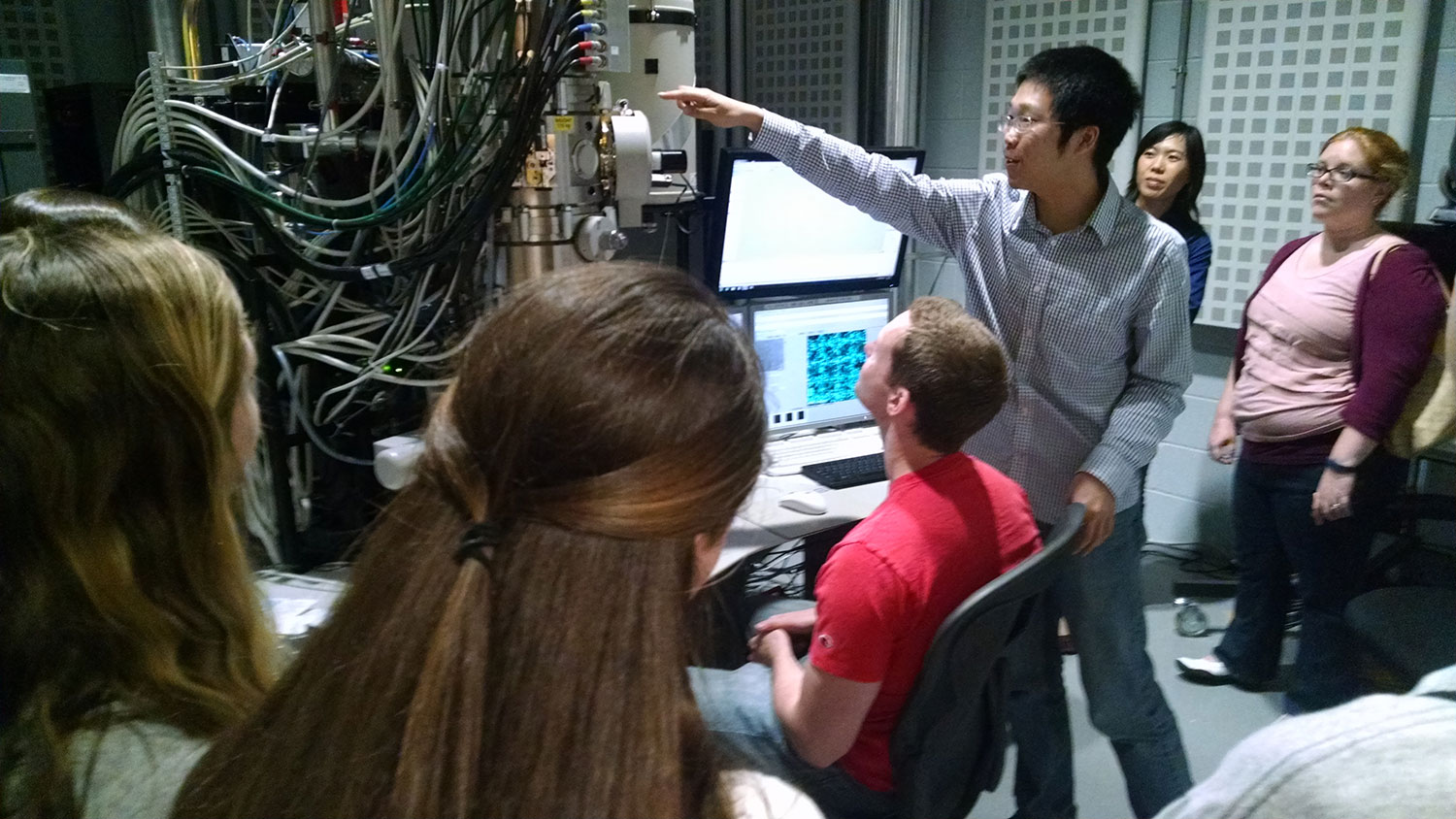
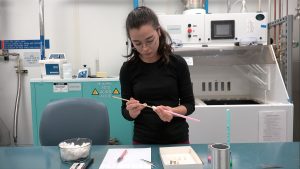
Engineers from North Carolina State University and across the Research Triangle are planting large ambitions for very small ideas in the minds of makers worldwide.
Nanotechnology: A Maker’s Course is a new free class being offered through Coursera, a platform where anyone, anywhere can learn from the world’s top universities and education providers.
Want to be a nanotech maker?
Register for Nanotechnology: A Maker’s Course at www.coursera.org/learn/nanotechnology. The course is free to audit; a certificate of completion is available for $49 and financial aid is available.
Spearheaded by faculty members at NC State, Duke University and the University of North Carolina – Chapel Hill, the new online course opens a wealth of opportunities for students, entrepreneurs and business people to learn about and use machinery involved in making high-tech products and studying materials on a molecular scale.
“There are currently no courses at NC State which give in-lab demos this extensive for nanotechnology fabrication and characterization,” said Jacob L. Jones, professor in the Department of Materials Science and Engineering at NC State. “Through this course, NC State students — and, in fact, everyone throughout the world — can virtually access and tour nanotechnology fabrication and characterization facilities at NC State, Duke, and UNC-Chapel Hill. These types of capital-intensive facilities are used mostly for research, but this is an easy entry and introduction to the facilities for anyone.”
The course also fits in handily with the NC State College of Engineering’s philosophy of experiential learning — students see real demonstrations performed in the laboratory, and at the end of the course have the opportunity to propose new experiments to be conducted in the nanotechnology facilities.
Nanotechnology: A Maker’s Course features a series of six-to-eight-minute videos describing different instruments and what they do, followed by videos of graduate students or faculty members demonstrating how to use them.
The tools generally focus on two areas of nanotechnology — characterization and fabrication. Characterization deals with measuring and analyzing microscopic features, like using a scanning electron microscope to reveal the tiny details of an ant’s head. Fabrication focuses on actually making things, like patterning atoms and molecules into the minute features of integrated circuits.
The videos highlight powerful technology available at NC State’s Analytical Instrumentation Facility (AIF) — for example, the FEI Titan Scanning Electron Microscope, which has such a high level of magnification that researchers can see the space between atoms, and the Time-of-Flight Secondary Ion Mass Spectrometer, which can analyze a chemical compound and record the weights of each component, to name a few. They also feature instruments from UNC-Chapel Hill’s Analytical and Nanofabrication Laboratory and Duke Engineering’s Shared Materials Instrumentation Facility (SMiF), among others.
“Not only are students exposed to nanotechnology theory and lectures, but also in-lab demos and operation of high-end, expensive instrumentation at NC State,” said Jones, who is the director of the AIF. “They will see the amazingly powerful capabilities available to NC State students and to the public, and learn how they can access and use this equipment as a business person or entrepreneur.”
The skills demonstrated are generally applicable in a wide range of industries, such as fabrics, cosmetics, composites, automotive fuel cells and batteries, water filtration, pharmaceuticals and computer fabrication.
The Coursera series is supported by the Research Triangle Nanotechnology Network (RTNN) — an NC State-led initiative and a National Science Foundation-supported collaboration among NC State, Duke and UNC. The RTNN is focused on providing public access to university facilities with leading-edge fabrication and characterization tools, instrumentation and expertise within all disciplines of nanoscale science, engineering and technology.
For those able to visit the Research Triangle, the RTNN offers training and use of the tools and machines featured in the videos. For free use, those interested can submit one-page proposals and be awarded training and facility usage time to complete their projects. This offers small businesses the chance to create a prototype or local researchers to build a case for a larger grant proposal. For those nowhere near North Carolina, the instruments can be accessed with RTNN staff support remotely via the Internet.
“The videos focus on demonstrations and plain-English explanations and feature a widely diverse set of demonstrators so everyone can visualize themselves as a NanoMaker,” said Duke Professor Nan Jokerst, the lead instructor for the course and director of the SMiF. Our goal is to make all people, regardless of their background, aware of these opportunities and what they’re capable of.”
The RTNN also has a local outreach arm, where members of the group take a scanning electron microscope out to local schools to raise interest and awareness. Handouts targeted for middle school and high school classrooms provide in-class activities with hands-on activities at RTNN facilities during a field trip. Summer camps and programs are also available for students who can make the trip.
“We really wanted to answer the question of, ‘How can you become a nanotechnology Maker?’” said Jokerst. “Our goal is to build our user base. As Sir Francis Bacon famously said, ‘Knowledge is power,’ and we want more people to have the knowledge of what’s possible through our programs.”
